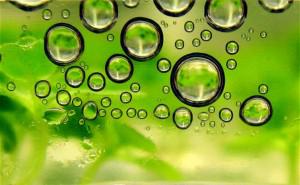Biofuels are alternative fuels to petrol or diesel, but they are still not perfect for the environment or for a car’s performance.
Biofuels require vast amounts of crop growing acreage, so limit the amount of arable land available for food production. Crops such as sugarcane and maize can be fermented to produce ethanol. Ethanol is an alcohol that is blended with petrol to fuel cars, usually at a rate of 85% petrol to 15% ethanol.

Another downside to using ethanol is that, like any alcohol, it’s corrosive. All parts of the car exposed to ethanol must be made resistant to corrosion – using either stainless steel or plastic.
The other biofuel is biodiesel. It can be made from plant oils, rendered animal fat or used cooking oil. In fact, as early as 1900 at the Paris World Exposition, Rudolf Diesel ran his demonstration engine on peanut oil. The process used to remove contaminants such as glycerine from the oils and fats is called transesterification.
Modern diesels can run on 100 % biodiesel with little loss of performance compared to petrodiesel. It also runs cleaner than petrodiesel and the emissions are reduced by about 75%. However, it’s unusual to use pure biodiesel as it’s expensive. The higher concentration blends or pure biodiesel also become waxy at low temperatures and do not flow easily. Special additives have to be added to prevent the fuel solidifying.
A more practical option for low emissions cars today is the use of hybrid technology. While hybrid cars still require diesel or petrol, they have an electric motor that works alongside the combustion engine, so their fuel consumption is much lower. Lower fuel consumption also means that hybrid cars produce fewer carbon dioxide emissions, so they are far better for the environment than conventional diesel or petrol cars. And the electricity used to charge the electric motor is generally harvested from the process of regenerative braking, far more environmentally friendly than electricity generated by burning coal.
While none of the alternatives available for production cars at the moment are perfect in terms of the emissions they produce, either in use or in their sourcing to be used, they are all positive steps towards making transportation greener.

